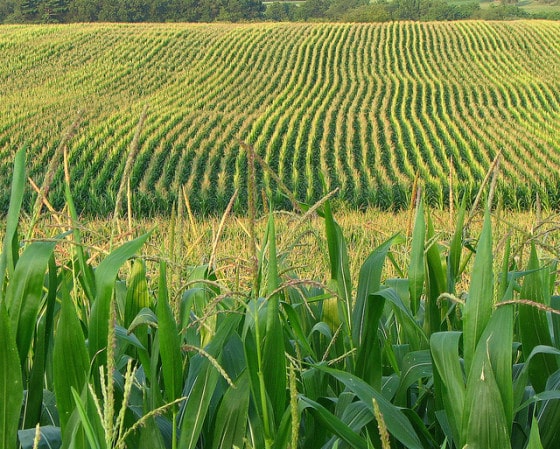
Can Biofuels Really Be a Sustainable Fuel Source?
Over the years the question has been raised countless times as to whether biofuels can actually be a sustainable fuel source. While some may argue the value of biofuel, many believe that as long as the biofuel is made from waste products, not food sources, benefits can be had. A recent Phys.org article brought up the point that while the cost of biofuels must come down to attain true sustainable levels, if farm residues can be transformed into biofuel and other end products, it could become much more viable fuel source.
The transportation industry has been delving into biofuels in recent years to help ease the costs, particularly among airlines, of transporting people and goods across the nation and around the world. According to CBS MoneyWatch, the airline industry has been quite concerned with restrictions being imposed on global aircraft emissions. If airlines do not come up with a sustainable option, it could have a significant impact on flight frequency and profitability. In an effort to wean themselves off of costly diesel and jet fuels, some airlines have been investing in and opting to use biofuels made from agricultural waste, trash, wood waste and food not used for human consumption.
To get the airline industry and other transportation industries to dramatically lower the emission levels, 100 percent certified-sustainable biofuel must be a major contributing factor. Fortunately, as stated in an opinion piece on The State,
“Potential plant material for making biofuels includes leaves and stalks left on the ground after harvesting grain crops, waste wood from harvesting trees or from the lumber mills, or special trees and native grasses grown on marginal soils not suitable for food-crop production. Hence, there will not be widespread production of biofuel crops on fertile food-crop land, as critics contend.”
As The New York Times is reporting the European Union plans to have biofuels account for 10 percent of its transportation fuel by the year 2020, and the United States has set a goal of 12 percent of its transportation fuel coming from biofuels, it is essential that a sustainable fuel source be found. Wind, solar and hydroelectric can simply not power the transportation industry at the levels required. Another fuel source is required.
The following are just a few of the biofuels which have been considered or tried in recent years:
- Colorado’s new alga may be a source of biofuel production
- Grass as the new biofuel
- Boeing begins program to produce aviation biofuel from hybrid tobacco plants
- Gasoline-like biofuels from plant waste — promising new processed developed
- Biofuels made from rubbish ‘could power 16% of EU road transport’
- Method yields biofuel, food from one crop
- Biochemist studies oilseed plants for biofuel, industrial development
Until all vehicles are equipped to run on renewable energy, biofuel or other sustainable sources, it is really up to each of us to make changes that can help lower greenhouse gas levels and reduce emissions. Opting for public transportation, driving less and walking whenever possible are all good choices. As many of the vehicles on the road today require the use of gasoline or diesel, another choice should be considered as well. Biofriendly Corporation has a liquid fuel catalyst you can use to increase fuel economy, decrease harmful emissions and improve engine power. One bottle treats up to 80 gallons of gasoline, making your vehicle cleaner and greener in as little as one month’s time. Those who have vehicles running on diesel can use Biofriendly’s Green Plus® for Diesel.
When it all comes down to it, we all have many different transportation and fuel (or biofuel) options from which we can choose. The important part is making the choice…choose to make a difference. Choose to do something good for you and good for the environment. Even small changes add up.
Corn field image by fishhawk via Flickr Creative Commons license.




Post a comment